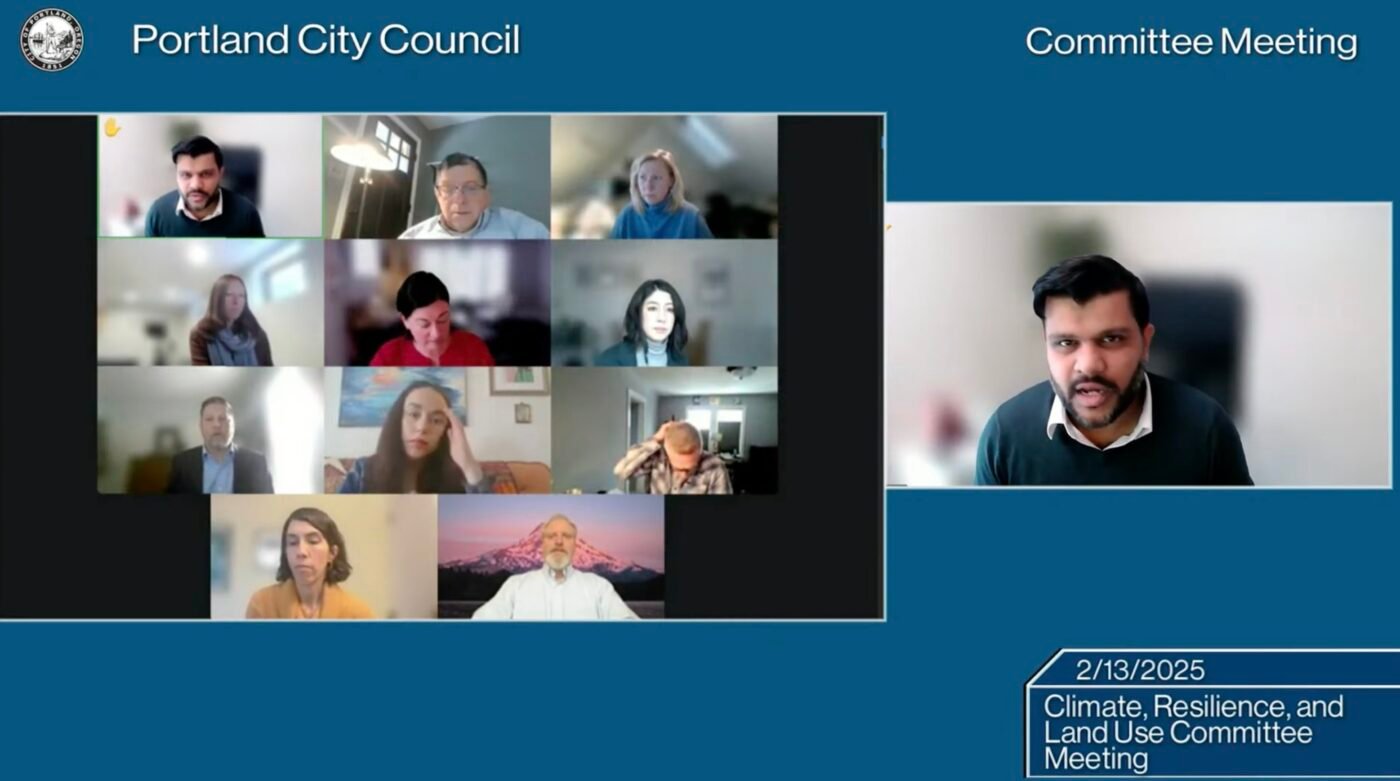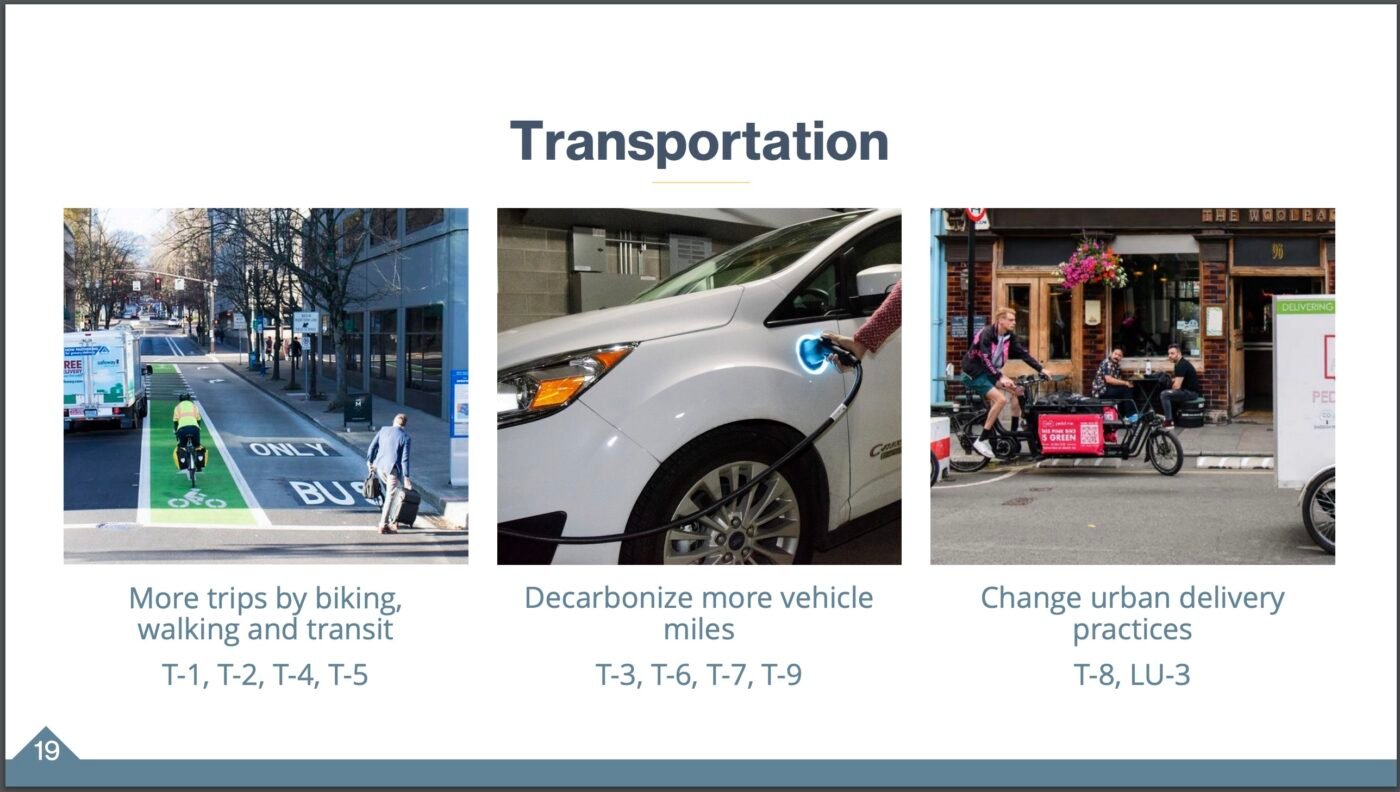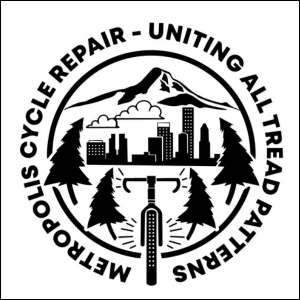Portland’s new City Council held its first-ever meeting of the Climate, Resilience, and Land Use Committee last Thursday. After a presentation from city staff on the Climate Emergency Work Plan and how Portland will meet its carbon emission reduction goals, City Councilor Sameer Kanal (D2) made comments that raised eyebrows among some transportation reformers.
Portland Bureau of Transportation Planning Group Manager Kristin Hull told committee members that in order to reach net zero carbon emissions by 2050, “We absolutely need to shift more trips to biking, walking and transit. It means changing the behaviors of individual individual Portlanders… it is absolutely the most critical thing we can do to reducing vehicle miles traveled.” Hull’s comments leaned on work that PBOT does to gently incentivize more people to consider options other than driving a car; things like improving transit and biking networks, charging more for car parking, hosting events like Sunday Parkways, and so on.
When given a chance to make a comment, Councilor Kanal responded directly to Hull’s comments. “There was an approach about trying to use incentivization of individual Portlanders’ decision making as the primary methodology for reducing transportation-related carbon emissions that was kind of concerning to me,” he said.
Then Kanal added, “I don’t think PBOT’s approach addresses the time needs of individual Portlanders,” and that he feels the “bike focus” is sapping urgency from improving transit service. Here’s more from Kanal’s response:
“Portlanders generally do the climate-friendly thing as long as they’re aware of what that is, and they’re able to do it without a substantial cost of time or money. I think that the bike focus for folks who might need to make a trip that will be 20 minutes while driving but an hour while biking, is a way of getting around the conversation about actually investing in public transit.
And that’s not to say that bikes are bad. I’m not saying that at all. But they’re not necessarily the only solution. Same thing with walking and all that. So I was pretty concerned about why we’re investing so much effort into that [biking and walking], as opposed to public transit, which will get you from places in District 2 or District 1 — and frankly all over the city and downtown — a lot faster than say, ‘Hey, bike this entire way,’ especially when we’re also building those bike lanes on major thoroughfares and creating the safety risks associated with that.”
What began as a concern that transit gets short-changed by the City of Portland (keep in mind TriMet owns and operates transit, not PBOT), morphed into what appeared to be an effort to frame transit as a faster and safer way to get around the city than cycling.
For the vast majority of trips, cycling is actually faster than transit — not to mention much more flexible, reliable, and inexpensive (in the long run). According to Google Maps, an eight-mile trip from Peninsula Park in Kanal’s District 2 to Portland Community College’s Southeast Campus in District 1, is 55 minutes on transit compared to 50 minutes by bike. On an e-bike, that trip could easily be just 35-40 minutes. An even easier-to-bike trip of 3.3 miles from Overlook Park in north Portland to City Hall downtown would also be faster by bike, according to Google.
In response to Kanal’s comments, PBOT’s Hull said, “I think we are in an all systems go approach. It’s not one or the other.”
Watch the exchange below:






